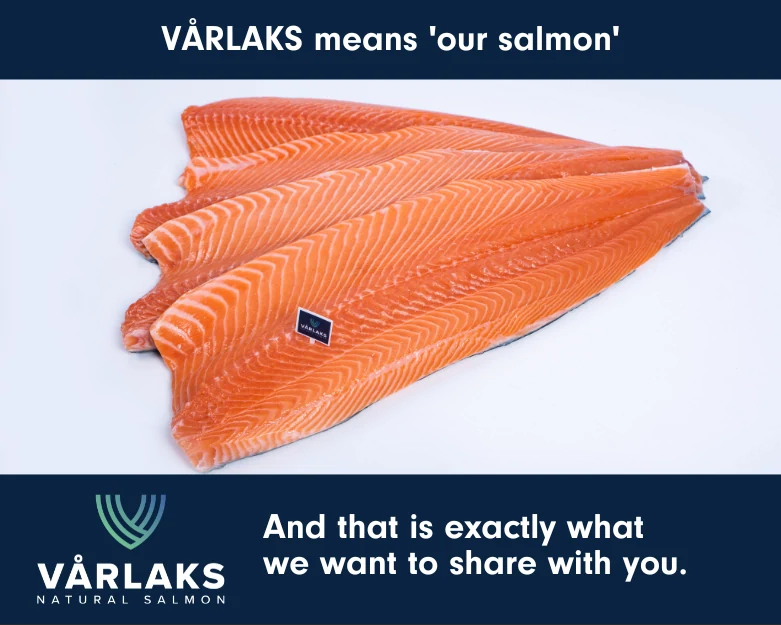Could prioritizing positive emotional cultures in aquaculture lead to a more compassionate, effective, and sustainable sector? Former lawyer turned executive coach Matt Verrell thinks so.
Sitting at my desk as a lawyer many years ago, I had little idea or appreciation for the concept of emotional culture. But there was an emotional culture surrounding me that permeated every aspect of my experience at work – a culture of suppression.
When we talk about positive emotional cultures, we refer to work environments where emotions are acknowledged, valued, and managed effectively. It gets to the heart of how people are really feeling day in and day out.
What are the kinds of emotions people have at work they feel they can show – and which feel should be suppressed?
In positive emotional cultures, employees feel comfortable expressing their emotions, whether positive or negative, without fear of judgment or reprisal.

In the world of law, where I used to work, emotion was not something we heard about very often. Unsurprisingly, we were rarely encouraged to describe how we were feeling.
The result was a ‘bottling up’ of emotions – simply getting on with it. Within this high-achieving, high-pressure environment the cracks started to show. The outcome personally for me were high levels of anxiety and ultimately burnout. Had I learnt and been encouraged to speak more about my emotions the outcome may have been quite different.
Sharing emotions
Recent research conducted by Michael Parke at Wharton School University of Pennsylvania offers a sharp departure from the old-school belief that professional detachment of emotions from the workplace is best. He found teams that feel comfortable sharing real emotions with other team members not only come up with better ideas and insights, they’re more creative and produce more creative outcomes.
The challenge for managers is to have the courage to move away from the belief they’ll be regarded as soft or weak for acknowledging emotion at work.
Toxic positivity is still the default culture in many companies, where individuals learn to put on a show and take an ‘everything is fine’ attitude. This facade can only continue for so long.
For a start, it’s exhausting. Eventually team members will be longing to find an alternative work environment with people that trust and care for each other. If you don’t have to fake your emotions at work, you’re 32% more likely to love your job, suggests research from LeadershipIQ.
DNB links borrowing costs to welfare goals as bank exec calls mortality crisis ‘unacceptable’
Lessons for the salmon industry
As an industry that contributes to food security, economic growth, and innovation, aquaculture provides employment opportunities, supports local communities, and contributes to global food supply.
But factors such as stress levels, top down structures, challenging work environments, and the stress of dealing with an industry in the public eye may be impeding the creation of a supportive and inclusive work environment.
Addressing these challenges is crucial for fostering a positive emotional culture within the aquaculture sector, which could lead to improved mental health, employee satisfaction, and overall wellbeing. Think about the impact this would have on productivity, connection, engagement and ultimately financial performance.
Long working hours, heavy workloads, and the pressure to achieve can contribute to burnout. Instead, imagine an industry in which a positive emotional culture encourages open communication and the sharing of emotional experiences, allowing individuals to connect and support one another.
The business case for improving workplace cultures is clear: Firms that place a positive emotional culture front and centre as the key driver of wellbeing can reduce levels of absenteeism by x11, offering significant cost and time savings on recruitment and retention.
Better outcomes
Today, the focus on mental health and wellbeing is gaining traction.
Positive emotional culture not only improves internal dynamics but also strengthens client relationships. Aquaculture professionals who empathize with their clients on a deeper level can provide better support, resulting in increased satisfaction and better outcomes.
As the industry evolves, younger generations of seafood professionals are placing a greater emphasis on work-life balance and wellbeing. The creation of this kind of culture can differentiate companies and organisations as employers of choice, attracting and retaining top talent.
As leaders in the aquaculture industry commit to an emotionally literate workplace, they pave the way for a more compassionate, effective, and sustainable sector to meet the needs of the decades to come.
Former lawyer Matt Verrell is an executive coach and wellbeing advocate.









